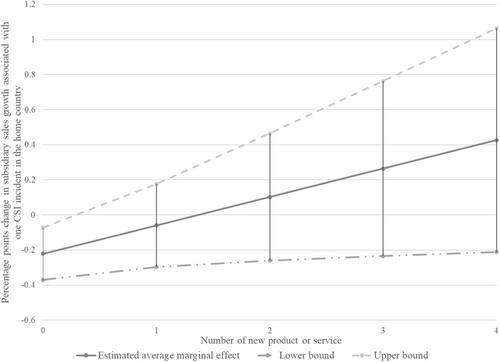MNCs' corporate social irresponsibility and foreign subsidiary performance
Abstract
Research Summary
Building on the cognitive view of stakeholder evaluation, we propose that multinational corporations' (MNCs') socially irresponsible acts transcend geographic boundaries and negatively affect foreign subsidiary performance. Moreover, we propose that foreign subsidiaries' product innovation and marketing campaigns create strategic noise in the information space that can mitigate the negative effect of MNCs' corporate social irresponsibility (CSI) incidents occurring elsewhere on the performance of their foreign subsidiaries. We test our arguments on 335 subsidiaries of 42 multinational grocery retailers from 18 different home countries. Our analyses, based on a sample of 2185 subsidiary-year observations over the period of 9 years (2012–2020), largely support our core argument that CSI incidents negatively influence the sales growth of foreign subsidiaries.
Managerial Summary
This research underscores the importance for MNC managers to be cognizant of the potential fallout from CSI incidents. With the global spread of information, MNCs' misconduct that occurs elsewhere can quickly impact the sales growth of foreign subsidiaries. The study found that product or service innovations are more effective than marketing campaigns in managing reputational damage, emphasizing the value of genuine, capability-enhancing strategies. Furthermore, the findings highlight the interconnectedness between socially responsible practices and innovation, suggesting that MNCs and their subsidiaries should focus on maintaining strong ethical standards while simultaneously fostering an environment conducive to innovation. This approach not only addresses the adverse effects of CSI but also strengthens the MNC's overall standing with its stakeholders.



 求助内容:
求助内容: 应助结果提醒方式:
应助结果提醒方式:


